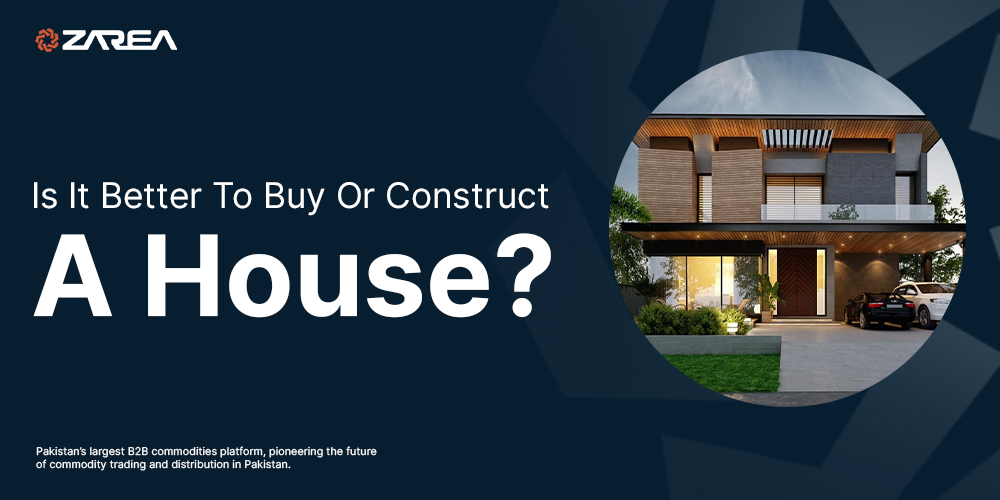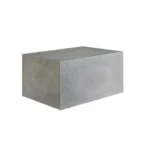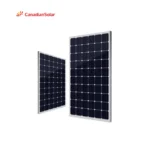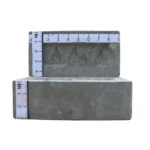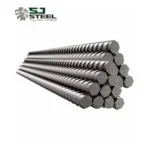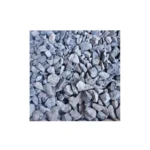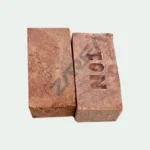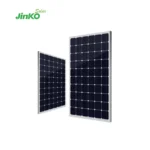Before signing any contracts or putting down any money, most homebuyers spend a significant amount of time and effort looking for or designing “the perfect home.”
Numerous factors are taken into account when looking for a new home, including location, cost, market trends, taxes,, and the property’s current state. Each shopper also has a list of must-haves (the things they can’t live without) and nice-to-haves (the things they want) (the features the buyer would like but could do without if necessary).
There are many options to consider when purchasing a home, but one of the first is whether to acquire a pre-existing property or start from scratch.
There are benefits and drawbacks to every option. Both arguments are presented here.
Acquiring A Pre-Owned House
Buying a pre-owned property offers significant savings and greater ease of use. If you have already been pre-approved by a lender, you can begin house hunting and make an offer on a home of your choice.
A competent real estate agent will help you save time and effort by locating desirable houses, handling negotiations, and handling paperwork. Your offer is accepted may mean a closing and subsequent move-in within a month or two.
Many people choose to buy an existing home rather than have one built because of the immediate gratification of being able to move in without having to go through the lengthy and potentially stressful process of securing financing, touring potential homes, making offers, having home inspections performed, and finally, closing.
Timetables And Budgets
Buyers on a tight timeline, such as those moving for a new job or whose children will be starting a new school, may find that they need to purchase a move-in-ready property.
Plus, there’s the price tag to consider. The National Association of Home Builders has accumulated data showing that it is often (but not always) more cost-effective to purchase an already-existing home.
You can use a mortgage calculator to get a better idea of how much it will cost to buy a home at today’s interest rates once you’ve discovered a potential, pre-existing home.
Following the nationwide financial crisis and housing crash, which caused real estate values to drop dramatically, prices for existing homes may still be fairly beneficial in your chosen real estate area.
Time-Saving Versus Individualized
Buying an existing home can also make sense if you want to settle in a well-established area close to your place of employment, your children’s schools, your social circle, and/or your parents and other relatives. There is a good chance that the home already has established landscaping, saving you the trouble of laying sod, planting shrubs, and waiting for trees to mature. Most of the land near the city center will already be built on, so buying an existing home is your best chance if you want to reside there.
Alternatively, the fact that you might not be able to customize the home to your exact specifications might be the biggest drawback of purchasing a pre-owned property. You might not be completely satisfied with the layout and would like a full bathroom or an additional bedroom on the main floor.
Essential Considerations
It may be difficult to find a house in pristine shape, so prospective buyers may want to account for the price of repairs and improvements.When purchasing a newly constructed home, homeowners have the opportunity to install energy-saving features.
Buying a home, as opposed to building one, is typically the safer option if you are on a strict deadline.
The majority of today’s homebuyers may be looking for something different, and older homes may be functionally obsolete. A gorgeous four-bedroom home may have only one bathroom or a kitchen that is too tiny to accommodate a growing family.
You can expect to spend more money on renovating, repairs, decorating, and/or landscaping unless you discover a pre-existing property that has everything you want and is in outstanding shape. When comparing the costs of different properties or when estimating how much it would cost to build a home from scratch, it is important to account for these ancillary costs.
New-Home Construction Has Many Benefits
Compared to purchasing an already-built home, constructing a new one is more inconvenient. It takes time to locate the site, which may not be in an established community, to hire an architect or builder, and to select each component of the new building.
Working with a reputable builder and having a proper contract in place will reduce the likelihood that your home will cost more than intended or take longer to complete than anticipated.
Participating in an already-established development could save you time, but it could also limit your options. You should also think about infrastructure, such as whether the land has municipal water and sewage connections or whether a well and septic system is necessary, as well as any necessary environmental and other licenses.
The main benefit is that you increase your chances of getting exactly what you desire. This is a major motivating element for many people who are trying to decide between building and buying a home. Still, there are other benefits, such as the opportunity to design a house that is more energy-efficient in terms of HVAC (heating, ventilation, and air conditioning), insulation, and filtration. Increasing your home’s efficiency can help the planet and lower your monthly utility costs.
A Win-Win For Both The Planet And The Bottom Line
One more benefit? It’s possible that moving into a brand-new home would improve your health. Asbestos, lead paint, and mold are common in older properties. And it’s greener since it can be constructed using certain materials.
Guy Burtt, principal at Riverstone Development Group, Inc., a full-service, licensed general contractor and construction manager, says that using “green” appliances/Energy Star-rated appliances, and more efficient toilets, plumbing fixtures, and electrical fixtures, allows you to build “green” for a more sustainable home in the long run. For example, “You can install, sheath, and/or wire for future technological updates, such as home automation and solar.”
Construction costs may be more upfront, but they could be more quickly recovered. “The resale value of your brand new house will allow you to earn far larger profits. For the most part, people prefer newer houses to older ones “This, Burtt chimes in. A new house also has fewer moving parts, so there won’t be as many repairs and upkeep costs. A new home comes with a warranty, so even if something does go wrong, you may be protected, as Burtt points out.
In addition to saving money and getting custom features, building a home can give you a sense of accomplishment that just buying one can’t match. When you go into a new house that you’ve built, “there is a strong feeling of an emotional connection,” says Burtt. “Your carpet still has that fresh, never-before-stepped-on-by-humans-or-animals aroma. This is an original work of your own making, and as such, it reflects your taste and character.”
Possible Disadvantages When Constructing a House
The major negatives of building a home are the increased prices and lengthened time frames that can occur at various points in the home-building process.
“Have your potential builder supply references and then check their former homeowner references,” suggests Burtt. The author suggests, “[And] try to employ a lump sum contract, rather than a cost-plus contract.” The risk of building cost overruns is shifted from the buyer to the builder in a lump sum contract. The purchaser may be spared the hassle of dealing with sudden price hikes.
Stay in close contact with your builder and make sure you’re delighted with the design and specifications before construction begins to save time and money. If you change your mind about the color of the granite countertops after they have been put, it will be bad for both you and the builder.
To add, your contractor must cooperate with you to lessen financial burdens. Asking ahead of time whether there is a cheaper alternative can save thousands of dollars by using alternate materials and fixtures. Remember that unusual requests, such as for a certain color scheme or a particularly intricate cutout, will generally increase in price.
Plan Everything Out and Keep in Touch With Your Builder
Making a plan for sticking to a timetable with your builder and attempting to have a contract that contains a construction time duration, and avoiding open deadlines, are both smart ways to ensure that your project is completed on time. according to Burtt.
If you live out of state, your builder must keep you apprised of developments. Find out who will be your main point of contact with the builder and inquire as to how often you can expect to receive images of the progress being made on your project.
Here’s the Deal
To get exactly what you want out of a home, you may decide to construct it even though you set out on your search determined to discover the perfect existing property. On the other hand, you could initially envision constructing a home but end up deciding that an existing one is more suitable. Working with a knowledgeable and experienced professional, be it a real estate agent or a general contractor, can assist make the process move more quickly and easily.

